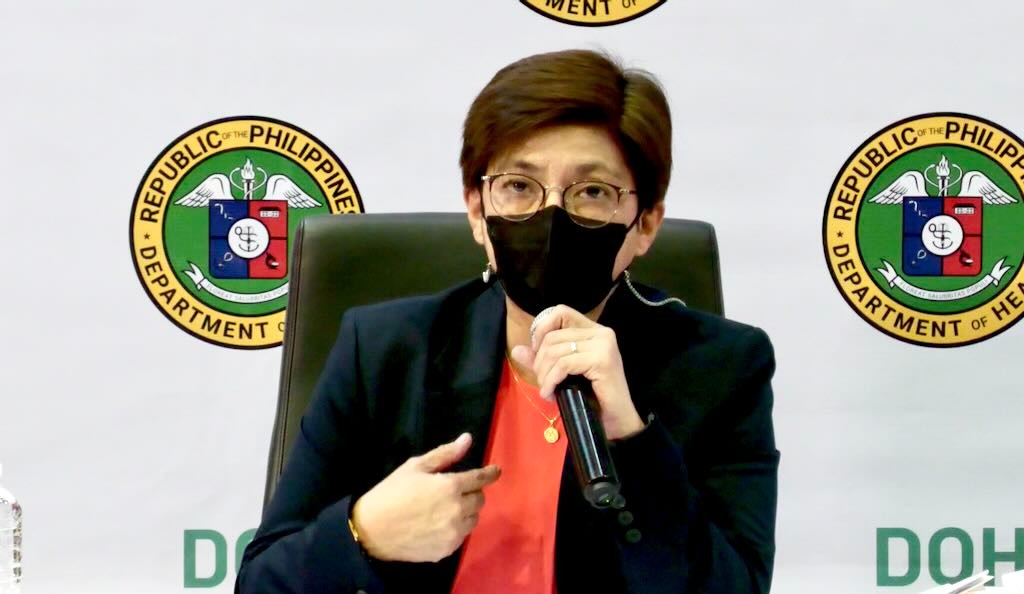DOH: CDC bill won’t lead to medical martial law

Department of Health’s Officer-In-Charge Maria Rosario Vergeire during the regular press briefing on March 28, 2023 at the Department of Health Central Office. NOY MORCOSO / INQUIRER.net
A Senate bill pushing for establishment of the Philippine Centers for Disease Prevention and Control (CDC) will not lead to “medical martial law” as its critics have been claiming, according to Maria Rosario Vergeire, Department of Health (DOH) officer in charge.
During a press conference on Tuesday, Vergeire said that the creation of CDC would enable the country’s health-care system “to be prepared in future pandemics or other threats to public health.”
“The CDC bill is not a medical martial law. We are pushing for this because we saw during the pandemic, in the last three years, the weaknesses in our health-care system,” she added.
Vergeire pointed out that the bill seeks to fill the gaps in health crisis response, such as institutionalizing science-based evidence generation and strengthening surveillance systems.
She recalled how there were only two provinces in the country with a “functional” epidemiology and surveillance unit when the COVID-19 pandemic started in 2020, on top of the lack of experts to help the government in drafting health policies.
Article continues after this advertisement“Under the CDC bill, we will harmonize the laboratories, experts and scientists, wherein there will be speedy trials so we can look into technologies needed to address illnesses,” Vergeire said.
Article continues after this advertisementEarlier, various groups representing at least 2,500 residents in Negros Occidental province voiced their opposition to Senate Bill No. 1869, which they claimed was in violation of basic rights enshrined in the 1987 Constitution.
In their petition sent to senators last week, the groups stressed that people who were not sick could be quarantined, while those unwilling or unable to be vaccinated or treated might be isolated.
They said that the proposed CDC would have the authority to impose lockdowns “with all the restrictions that may be imposed on the right to work, to education, to enter public spaces, all on the basis of a person’s vaccination status, age, health and other circumstances.”
Vergeire assured the public that the DOH “would not be kept out of the picture” as the CDC would become one of its attached agencies.
She also said that the bill would be another legal remedy for the COVAX facility’s donation of bivalent COVID-19 vaccines, which remains “on hold.”
“[The bill] will include provisions that will cover the [requirements] needed in the agreements,” she said.
Vergeire said the donation deal was “still being further studied” by the Department of Justice and the Office of the Solicitor General, while the DOH was in “constant coordination” with the Office of the President to address the legal requirements sought by vaccine suppliers. INQ